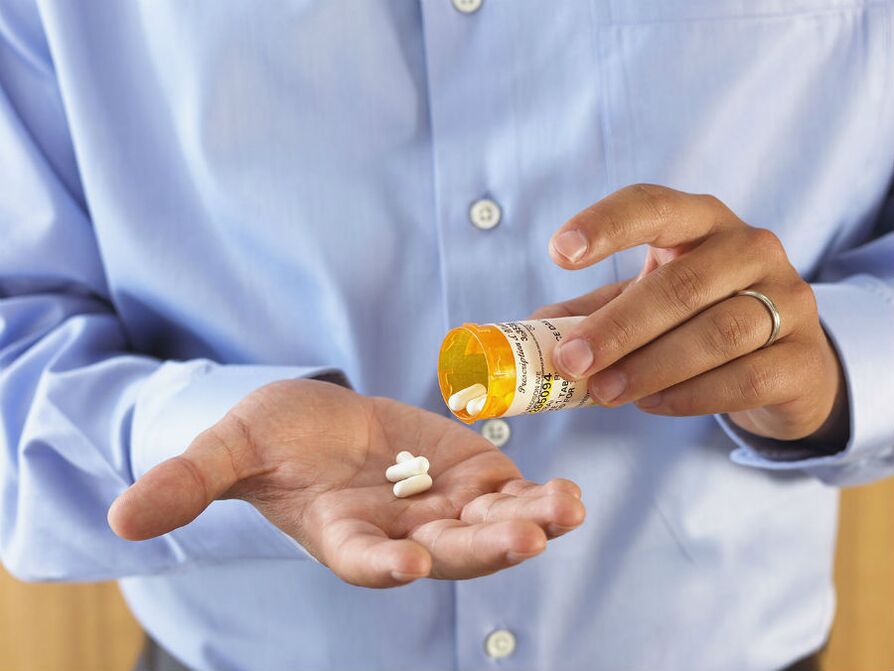
Prostatitis - inflammation of the prostate gland - is increasingly common in men of reproductive age, that is, between 20 and 50 years of age. A few years ago, this disease usually occurred in men over 60 years old. Of course, the reason for this change is due to the spread of factors that weaken the body.
So today this silent disease has become a real problem in modern urology: patients, unaware of the consequences, prefer to remain silent about their poor health. However, this lightheadedness can lead to sad consequences such as irreversible infertility and multi-organ inflammation.
Prostatitis occurs as a result of a bacterial infection, the causative agents of which enter the prostate gland in different ways - up (through the urethra), down (from the bladder), lymph and plasma (due to inflammation of other organs - sinusitis, anal fissures, hemorrhoids and even caries). However, in addition to the inflammation itself, there are several factors that trigger the mechanism that causes prostatitis.
Hypothermia, impaired immunity, hormonal disorders, urinary tract damage, sexually transmitted diseases, irregular sex life, sedentary lifestyle contribute to disease development. There are two types of prostatitis - acute and chronic, each of which requires both general and individual treatments.
The treatment
Treatment of the disease is to eliminate the stagnant or inflammatory process in the prostate gland. But in order to finally deal with the disease, you must first eliminate the cause of its occurrence, and then treat the disease.
Diagnosis - a smear from the urethra to check for viruses, protozoa, or bacteria in the gland. If any of these are identified, antibacterial therapy (antibiotic therapy) will be needed for bacterial infection and for viral etiology, interferon or gamma globulin preparations. Depending on the extent of the damage, people decide how long this treatment phase is.
Medicines - you can't do without them
First, you need to make sure that the process is infectious in nature. If so, drugs in this category are needed. In addition, they are almost always prescribed for chronic prostatitis, even when no obvious signs of infection are found.
The best option is to first take a swab from the urethra and test the sensitivity of the bacteria to the antibiotic - this will help you choose the most effective one.
Antibiotic therapy is carried out with a group of fluoroquinolone antibiotics. This is due to the fact that this antibiotic penetrates well into the tissues of the prostate gland, in contrast to the antibiotics of the penicillin, cephalosporin and macrolide series.
Antibiotic therapy can take a rather long time - up to three months. Don't forget, however, that mindless use of antibiotics doesn't benefit anyone - be sure to consult a specialist to advise which medication you need.
Note to patients - many drugs in this class work to decrease sperm count, but this only happens during treatment! There's no need to worry about this - after a few months, the sperm's ability to fertilize is fully restored.
Together with antibiotics, antifungal agents should be prescribed, since antibiotics act only on bacteria, and against the background of reduced immunity, a predisposition to fungal (ie, fungal) diseases appears.
An alpha blocker may also be prescribed, which relieves pain and spasms from the gland, and relaxes the smooth muscles of the bladder neck and prostate gland.
In parallel with antibiotic therapy, a man was prescribed prostate massage - a rather uncomfortable and painful procedure, but absolutely necessary to cure prostatitis. At the same time, the doctor will prescribe tonic drugs to help dissolve stagnant processes and increase the body's immunity.
The patient herself will have to do a lot - for the treatment to go faster, to ensure a better blood supply, the patient needs to lead an active lifestyle - move more, sit or lie down less.
For the comprehensive effective treatment of prostatitis, a man will likely be prescribed additional medications that include natural, natural ingredients. These drugs significantly improve the prognosis of treatment.
We repeat - taking these drugs does not eliminate all of the above stages of treatment, but only complements them. In any case, you can replace taking antibiotics with any herbal tincture - they have completely different directions of action. Let's take a look at the most popular male remedies for prostatitis.
On the modern pharmaceutical market, drugs for the treatment of both chronic and acute prostatitis are very widely represented. However, it should not be forgotten that the choice of drug is purely a personal matter, and before starting to self-medicate with any drug, you need to consult a urologist. Indeed, sometimes self-medication can do more harm than good.
Carelessness is the enemy of health
What if the disease is allowed to use its course? If a "lucky" man has an acute form of prostatitis, it is extremely important to consult a doctor at the first symptoms - this will help to cope with the disease faster. and much more efficient.
If the disease turns to the chronic stage, the possibility of long-term remission, during this time, the patient will temporarily stop feeling pain in the groin area when urinating, the body temperature will not be much different from normal, Men can decide that. His sexual function has also recovered.
However, in this "deceptive euphoria", the inflammatory process, which originates in the prostate gland, penetrates more and more deeply into all human organs. In addition, episodes of remission are replaced by exacerbations, the symptoms of which are much brighter than in previous episodes.
Carelessness regarding one's health can lead to many unpleasant complications - abscesses, loss of mobility, infertility. Furthermore, infertility in the advanced stages of prostatitis can rarely be treated.
Attention! Do not try to self-medicate. It is necessary to consult a doctor and visit the clinic.































